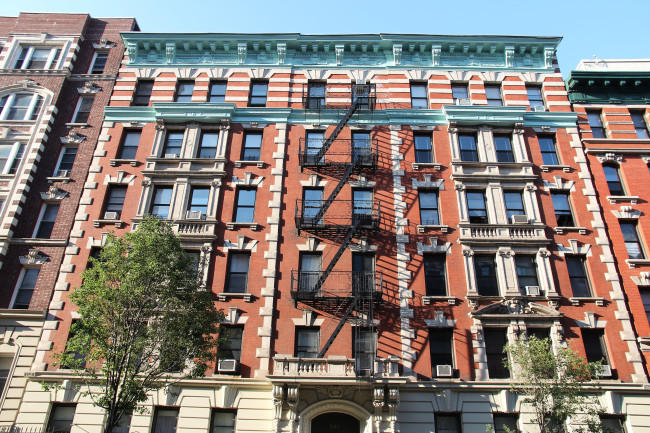A new bill aims to take on the infamous "tenant blacklist"—but is it enough to help renters?

It's no secret that the so-called tenant blacklist has been the bane of New York City renters pretty much since its inception. Since blacklists are comprised of public housing court information that's sold off to screening agencies, any appearance in housing court can land you on one of these lists, even if you end up winning your case, or were wrongfully taken to court to begin with.
A new story from the New York Times highlights not only the outsized impact of the blacklist, but its particularly pernicious effects on lower-income renters, who don't have the time and resources to fight back, or to find landlords willing to make an exception. For example, the Times follows a 68-year-old artist who, after several years spent homeless and moving from one temporary living situation to the next, got a letter offering her a spot in a low-income building. However, when she went to the interview, the person she spoke with checked the blacklist database, then told her she no longer qualified for the apartment. (The renter later found out this was due to a prior eviction from a poorly maintained apartment.)
Anecdotally, even for tenants who are still in their current apartments, fear of the blacklist often prevents them from taking justifiable legal action, or withholding rent, against landlords who are failing to maintain the building or provide other crucial services. (And frankly, we've wondered for ages why the list's existence isn't a massive city-wide scandal.)
To make things easier on unfairly stigmatized tenants, City Council member Benjamin J. Kallos introduced legislation to the council's consumer affairs committee this week that, if passed, would require screening companies who compile the lists to include more information about the cases, which would hypothetically help landlords see if a person had been in court on legitimate grounds, rather than, say, for flaking on their rent. "No one should be condemned to being homeless just because they were in housing court," Kallos said.
Naturally, landlord advocates say the lists serve a useful purpose in helping to weed out unreliable or excessively litigious tenants, and in any case, as the Times points out, screening companies have proven in the past to be inventive when it comes to getting around new regulations aimed at curbing the effect of the blacklists.
In the meantime, as we've written previously, you do have the option of paying screening companies anywhere between $15 to $50 to see if your name is on one of these lists (tips on the process here). And if you're already on the list, it's wise to disclose the issue with landlords up front when applying for apartments, and look for smaller owners, who tend to be more personal (and understanding) in the selection process than large management companies.
And one more tip: If you're thinking of withholding rent because something's wrong with your apartment and your landlord refuses to fix it, you may want to take the first step of filing an HP action, which can force the landlord to make repairs without either of you having to set foot in court. It's unfair, but as long as the tenant blacklist is still around and used by lots of landlords, it may be best to leave housing court as a last resort.
You Might Also Like



























